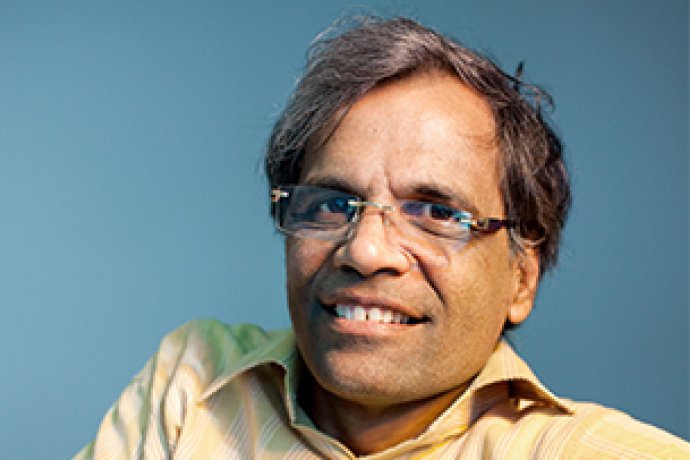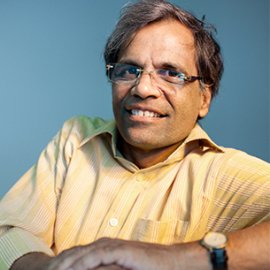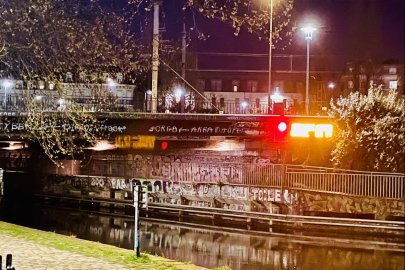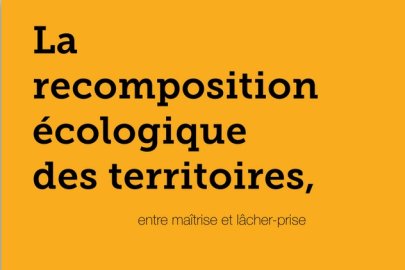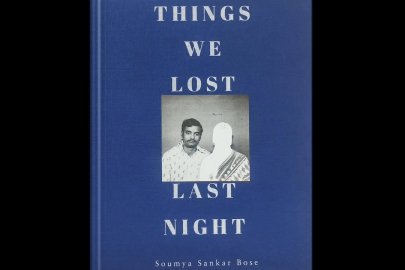Am I singing a Swan Song?
Udayan Vajpeyi
(I am indebted to filmmaker Kumar Shahani for enlightening me on the epic form which he so subtly achieves in his films, this essay is dedicated to his memory)

It was only when I grew young that I came to know, strange though it may be, that my elder sister is actually Father's elder brother. My eldest brother is Father's father. Our house was full of stories around these facts, some old dreams also circulated in the air of the house, turning these facts into tangible realities. Father's elder brother who died many years ago, had the habit of chewing tobacco, my sister could also chew it even when she was not more than two or three years old. The family felt that she used to talk to her mother, our mother not as a daughter would talk to her mother, but as some elder of the house talks to her bahu*. When Father was dying in hospital two decades ago, he called, perhaps for the last time, his eldest son, and the son replied, ‘yes, my son!’ It is said that Father remained quiet for some moments and then whispered, perhaps one of his last sentences, ‘Of course, you would address me like that, after all you are my father!’ He died believing that he was being given farewell not only by his own son but also by his own father. Or rather by his father and also his son.
My sister feels return of Father, years after his death, in my son. She actually thinks that he actually is Father. I am sure someone in the family must have, by now, seen the return of my mother in one of the children born after her death. Everyone in the family (whatever has been left of it after a number of deaths) is sure that in my granddaughter Abhima my dead wife, Anjana, has come back into our lives. Whenever she tells me anything with some force my present wife smiles.
One is never sure of the real identity of any of the family members in such a family. As the age, at which some ancestor is going to be found in a living family member is uncertain, one always relates ambivalently not only to other members in a family but even to oneself. A number of Indian houses have such persons living in them who are not only themselves but also someone else. I hear that some traditional Japanese houses have rooms which are built for the dead to live. Such rooms are kept vacant for such a purpose; an invitation to those who have deserted their earthly cloaks, an invitation for them to come in whatever form they are in and live invisibly in the house. In India too there are some tribal communities where for the deads of the village are some memorial stone or wooden pillars are given to live.
The narrative with which this essay began does not belong to only one family. I hear such narratives quite often. It is perhaps a very common narrative to be found in many traditional families in India. Such narratives along with certain others lend some kind of open-endedness to the family. I would like to call the family living with, and in such narratives as a family with an epic form, or an epic family. In such families one of the modes by which it endlessly extends itself and yet remains a formation, is the functional presence of reincarnation, there might be some other ways also. Call it a method or the technology of generation of epic family.
I am using the word epic in very definite and also limited sense; epic, in its Indian sense, suggests an open-endedness, it is a form without definite beginning or an end, that is a form without structure, which can include any number of digressions in it and is therefore richly inter-textual.
In a very similar manner the practice of reincarnation transforms the family space into a meeting place of various times, times not as memories or desires but as presences, a place where identities are rendered doubtful and ambivalent. If one is not only oneself but also someone else then the question of identity becomes a difficult one, and not only that even the identity of those who are related to such a person is rendered equally doubtful and uncertain. Fluidity of identities does not allow atomisation of the family members, they remain associated to each other through more than one relations: father doesn’t only remain father of his son, he can at the same time be his son's son, or his son’s younger brother and such like. His identity and authority as father gets subverted incessantly through the practice of reincarnation. The flow of authority becomes multi-directional, every member plays more than one role even to each other thereby each one starts living on more than one levels of authority.
Family becomes not a space of justice but of experience and tolerance, of decoding each other and thereby decoding oneself in more than one ways: if I am not only myself but also someone else then what is the texture of this ‘I’. Such a family is the space where real and fictional have coalesced into each other; therefore, it is a unique space for its members, not only functionally where people have come together for the sake of security and livelihood or pure biological continuity, but as a space of rites where multiple presences and times are experienced, where lives on this side of death and those on the that side of death, both make themselves tangibly present, a space in society and history and yet something beyond it because the practice of things like reincarnation opens the doors of family to times other than the present. A kind of open-endedness is brought into the structure of the family, a kind of rupture is created in its walls from where rigid historicity leaks out paving the path of multiple temporalities to enter like light beams into the family space.
Deads are brought back into the family, not as memory but as presences, as continuing solace. Or in other words, deads are rendered deathless!
Such is the scene of the epic family. Such is the role practice of reincarnation has played and is, still playing in the formation of family. But reincarnation is receding into the recesses of reason. The epic family is fast losing its vitality and form. Rationality is made to replace the practice of reincarnation which is gradually being subjected to rational analysis and through that it is being relegated to the category of superstition. Deads are hesitating to reveal themselves in the family spaces. Fictional might start bading farewell to the real.
And I am perhaps writing a swan song of the epic family. Or is there some possibility of its survival left? Or epic family has already started finding some alternate technology for its formation?
* Bahu is the generic word for daughter-in-law.
Postscript:
My writer friend Madan Soni says after reading this essay that am I advocating for the epic family? My answer is that this is not an ethical attempt I’m making. I'm aware that there are and can be other ways of making space available for deads to live as presences. Literature is one such space. I would like to say: for a dead who no longer has a home, writing become, a place to live. All significant writing, apart from being any other thing, is a delicate masonry for the absences i.e. for the deads and imaginary beings to live. Perhaps.
